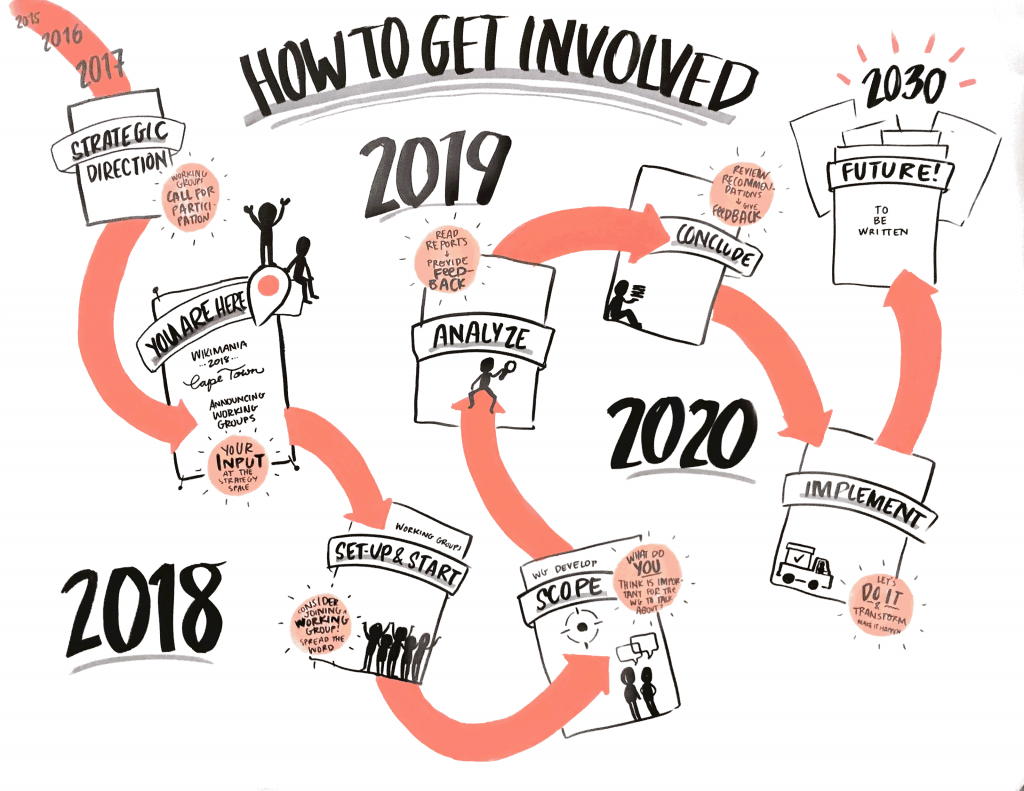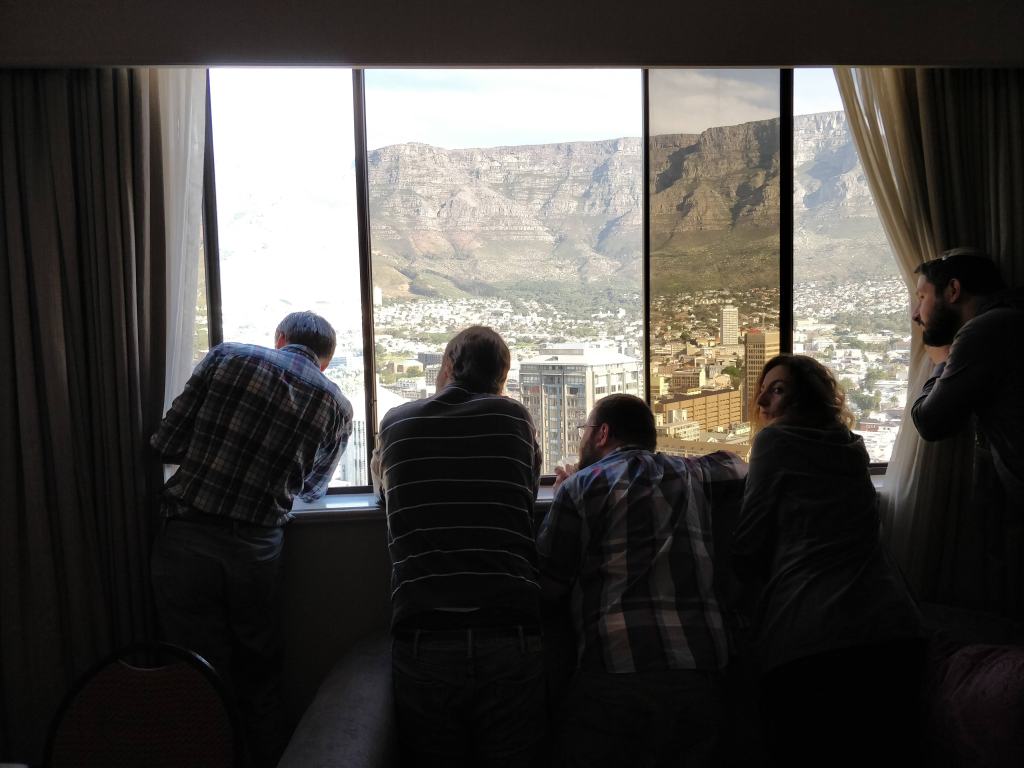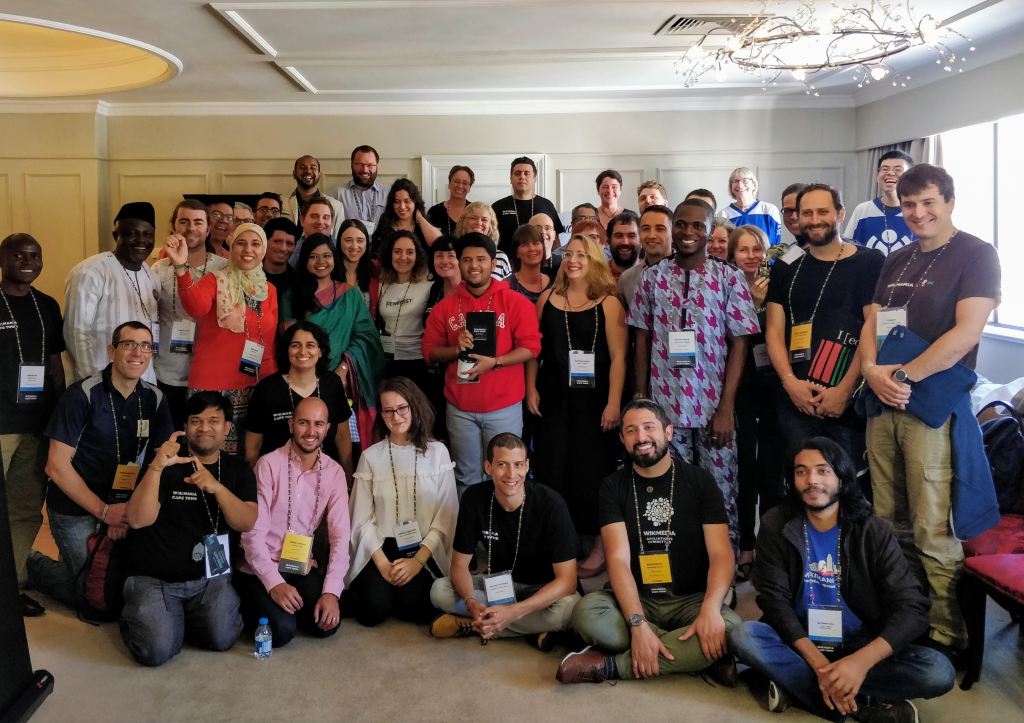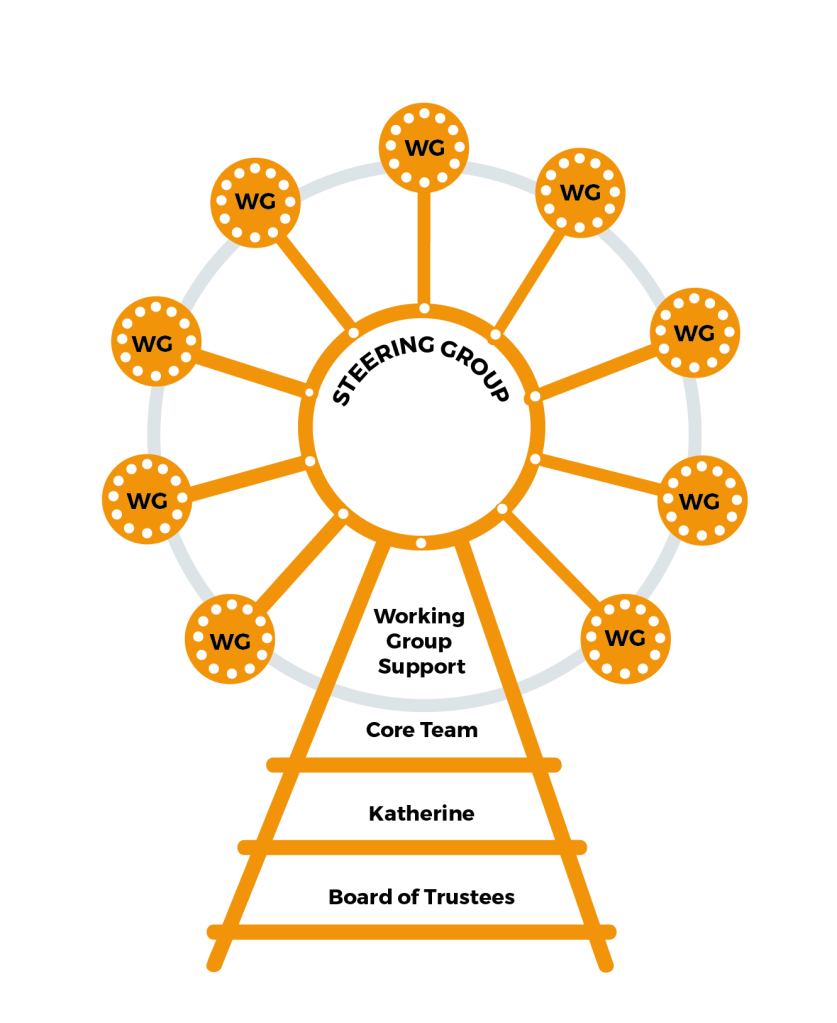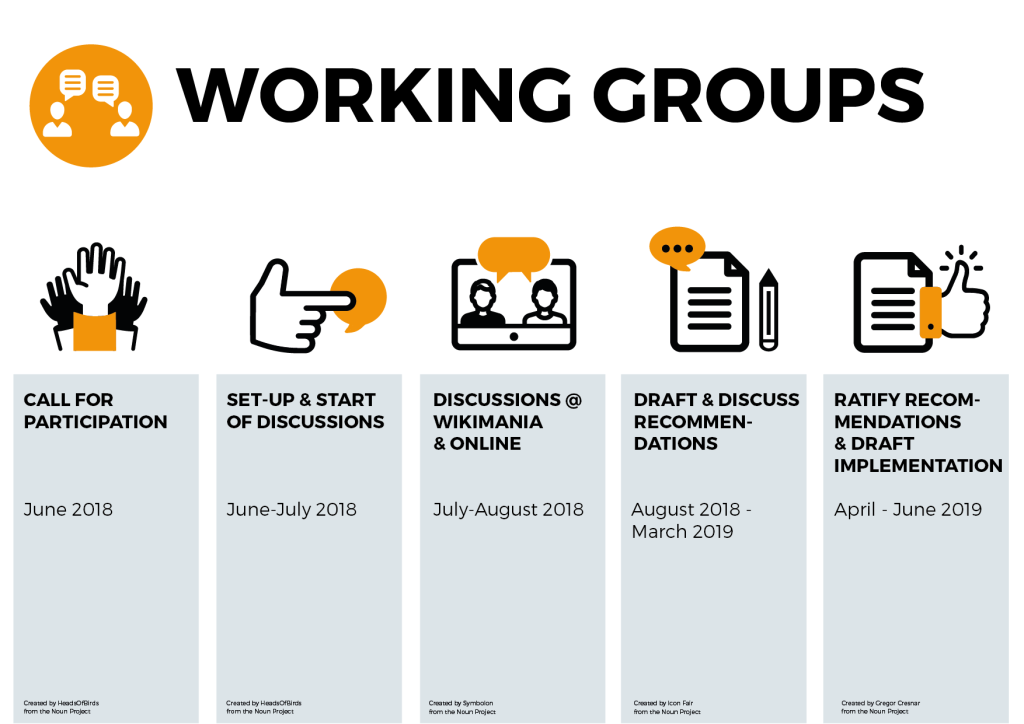The Wikimedia 2030 Strategy Process is about addressing complex challenges and seizing the opportunities for the Wikimedia movement, now and in the future. It is a process initiated by the Wikimedia Foundation, seeking broad affiliate and community involvement on a global scale. Currently, the Strategy Process focuses on determining how the movement needs to change its structures, resources and dynamics so we ultimately can meet the goals laid out in the Strategic Direction.
For the Movement Strategy Process, Wikimania 2018 in Cape Town was an important milestone: Nine thematic Working Groups who will draft recommendations for the future of the Wikimedia movement were initiated.
The Strategy Space
The Movement Strategy Core Team was present at this year’s Wikimania to support participation and engagement of the diverse constituents and stakeholders of our movement in the Movement Strategy Process, using the rare occasion of meeting in-person in the setting of the biggest Wikimedia conference. To help facilitate these outcomes, the Core Team created what we called a Strategy Space, which provided Wikimania participants with updates on the movement strategy process, and allowed them to raise concerns, critical questions, and share ideas.
Before Wikimania started, the strategy space became the temporary home of the Steering Committee, which was made up of 18 Wikimedians involved in the Movement Strategy Process in different capacities. Steering committee members were tasked with selecting members for nine Working Groups to develop concrete recommendations for change on the structural level of our movement in key thematic areas. The steering committee selected the members after going through many applications; considering diversity criteria in terms of expertise, background, representation, and ensuring that the resulting groups contained a balanced composition of participants while taking different kinds of expertise into consideration.
The thematic areas for the Working Groups are Advocacy, Capacity Building, Community Health, Diversity,Partnerships, Product and Technology, Resource Allocation, Revenue Streams, Roles and Responsibilities. Working Group members will now draw on their own experience and perspectives to solicit input from within the Wikimedia movement as well as external experts. Of the 88 members selected, roughly half were present at Wikimania and were able to meet and start discussing their subject area. Each working group also contains a member from the Wikimedia Foundation’s Board of Trustees.
In addition to the Working Groups, the strategy space also hosted a session for regional and thematic group members to share their perspectives on how the Working Groups could best connect and communicate with their communities. For example, the most up to date and active regional communication channels were shared with the session participants, ranging from diverse social media groups to mailing lists and video conference calls.
Next steps
The Working Groups are now focusing on increasing the diversity of the individual groups, and deciding on how best to work together. Group calls have taken place throughout August, and each group has chosen interim coordinators.
The general timeline looks like this:
The Strategy Core Team, together with the Working Groups, will provide periodic updates of activities that happen within the Strategy Process to the general Wikimedia movement. A full report from the Wikimania Strategy Space can be accessed here. If you would like to get a background of the Movement Strategy Process from last year, please refer to the Meta-Wiki page.
Douglas Ssebaggala, Information and Knowledge Support, Movement Strategy Core Team
Anne Kierkegaard, Project Assistant, Movement Strategy Core Team
